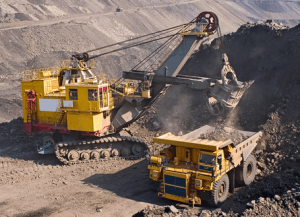Minerals Commission rejects two Development Agreement applications
 The Minerals Commission has turned down the applications of two Australian-based mining companies requesting for a Development Agreement with the Government of Ghana, ghanabusinessnews.com can report.
The Minerals Commission has turned down the applications of two Australian-based mining companies requesting for a Development Agreement with the Government of Ghana, ghanabusinessnews.com can report.
A source within the commission, who divulged this information to ghanabusinessnews.com on grounds of anonymity, said the decision to decline the two applications was taken after an extensive evaluation of the requests which if granted, could deprive the country of several millions of dollars in taxes from the two companies.
The commission has therefore forwarded its decision to the Ministry of Lands and Natural Resources, which has the final say on such applications, to act on it.
The two companies are Azumah Resources Limited which holds mining concessions in the Upper West Region and Cardinal Resources Limited with concessions in the Upper East Region.
Ghana’s Minerals and Mining Act (Act 703) of 2006 as amended in 2015 makes provision for mining companies investing a minimum capital of $500 million into their operations to request for Development or Stability Agreement with the government.
However some experts in the sector say such provisions have largely been exploited by companies to seek favourable fiscal terms to the detriment of the state.
In a Stability Agreement as provided in Section 48 of the Act, government is obliged to freeze the existing fiscal terms for the company over a period to enable the company ‘stabilize’ and recoup its investments.
Development Agreement as captured in Section 49 of the Act dictates that government adjusts the existing fiscal terms downwards for the company over a period. The company on the other hand agrees to undertake certain infrastructure development within the duration of the agreement.
But, our source at the Minerals Commission said the two companies did not merit these preferential treatments because per the commission’s evaluation of the data the companies presented, their projects could still be profitable without a development agreement, hence the decision to reject the application.
“So what we did was to model the data from their own Feasibility Study Reports against the current fiscal terms and we found out that those projects could still be viable without a development or stability agreement,” the source said.
The source said: “The commission has its capacity enhanced in late 2018 so now it’s able to make such determinations,” adding that, “I think this is a good step.”
While this seems to be a laudable move, Mr. Solomon Kusi Ampofo, the Natural Resource Coordinator of Friends of the Nation (FoN), a Non-Governmental Organization (NGO), believes it would amount to nothing if the Minister of Lands and Natural Resources lacks the political will to implement the recommendations of the commission.
“The Minerals Commission has done its part. It can only recommend. It’s up to the minister to either accept or reject the recommendations,” Mr. Ampofo said.
He said Stability and Development Agreements end up in parliament for ratification therefore the capacity of parliament must also be built to enable it take decisions in the best interest of the country.
By Marlvin-James Dadzie
Copyright ©2019 by Creative Imaginations Publicity
All rights reserved. This news item or any portion thereof may not be reproduced or used in any manner whatsoever without the express written permission of the publisher except for the use of brief quotations in reviews.
